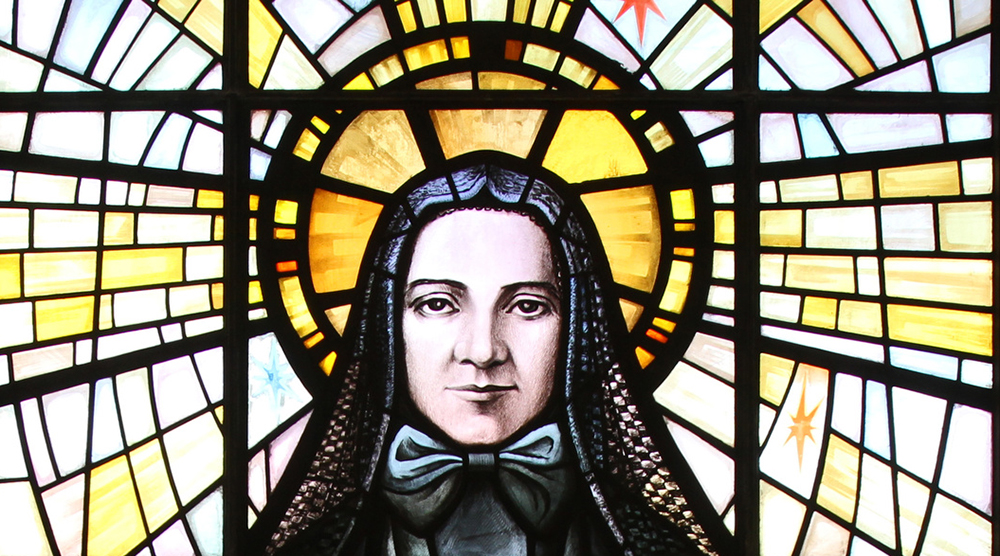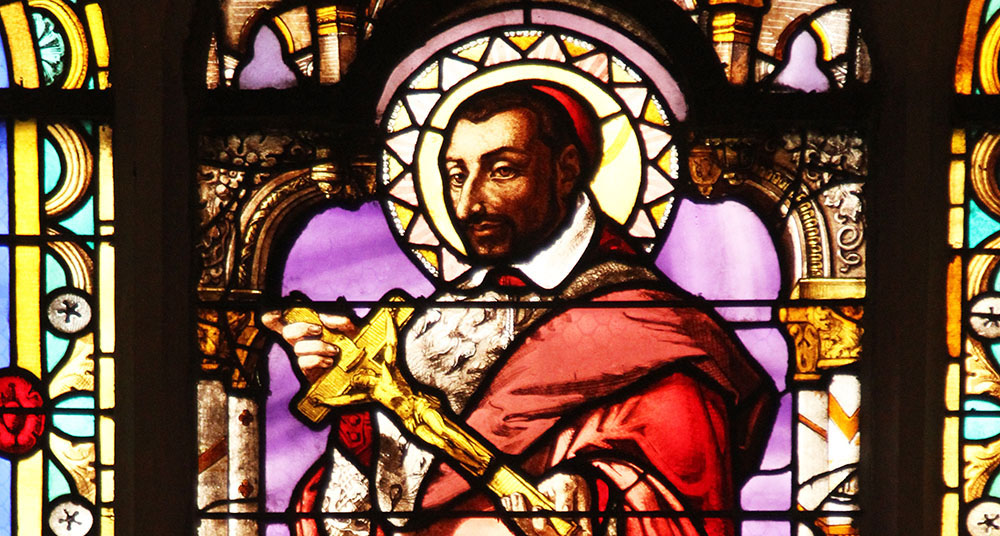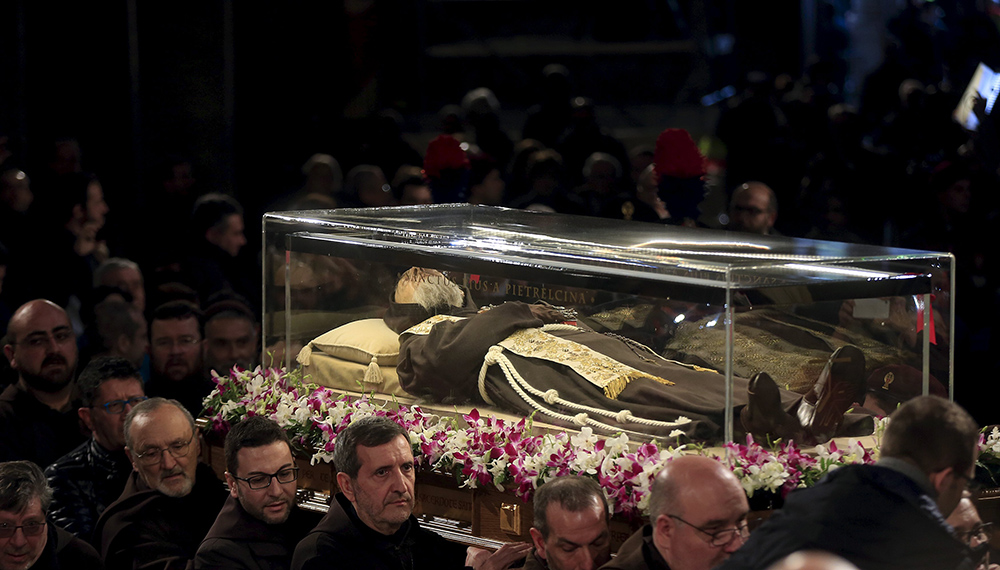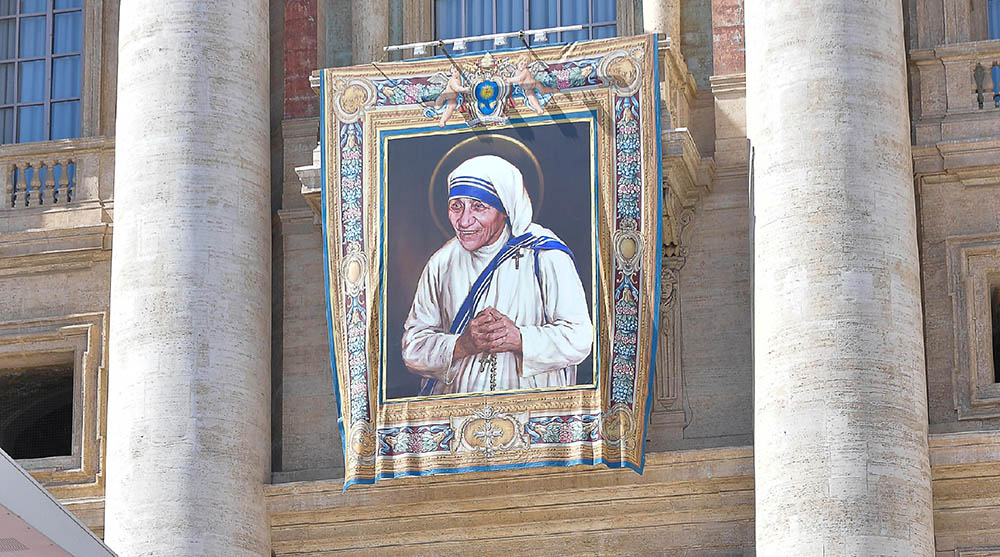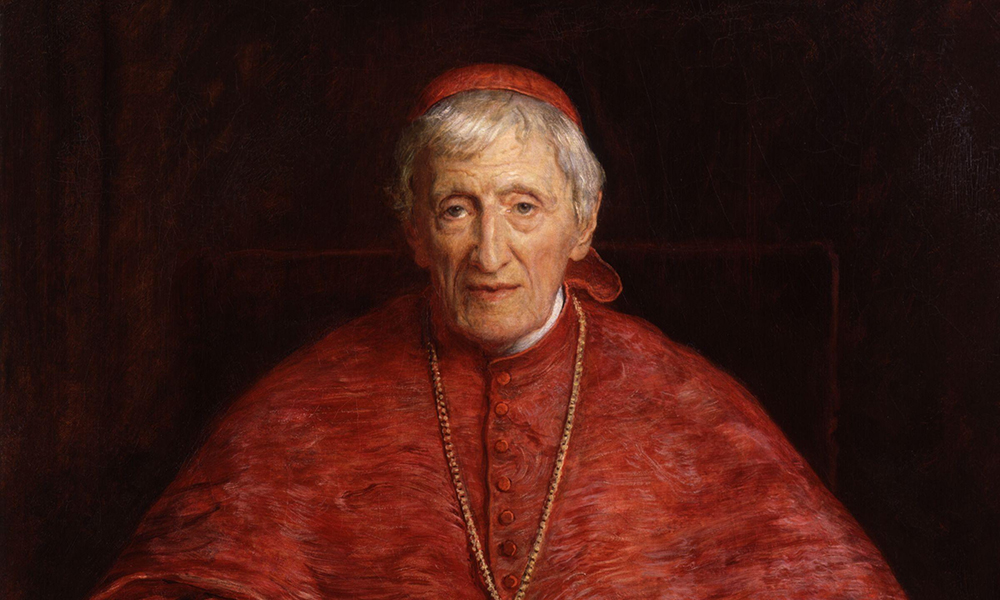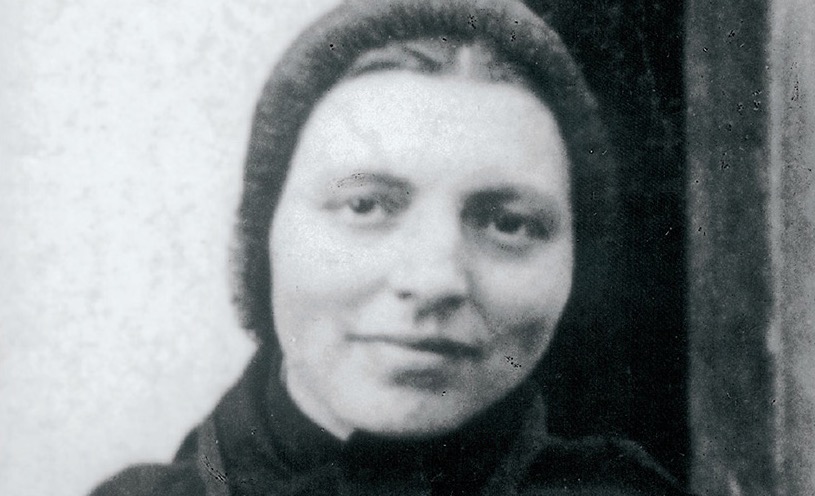A young Italian woman seeking a consecrated life simply would not take no for an answer when the Daughters of the Sacred Heart denied her request to enter their order. Despite her frail health — the reason she was denied — the young Maria Francesca Cabrini (1850-1917) would not be deterred from accomplishing the greatness God had in store for her. Motivated by deep faith, Cabrini did something rare for a 24-year-old woman in 19th century Italy: She established her own religious community.
Responding to the needs of her local diocese, Cabrini was asked to manage an all-girls school and boarding house with five companions, all of whom desired religious life.
As they lived and worked together for three years, Cabrini conducted them in a novitiate, resulting in their profession of vows in 1877 and the establishment of the Missionaries of the Sacred Heart of Jesus. Cabrini composed the rule of the new missionary order and remained superior general until her death.
At her profession of vows, Cabrini adopted Xavier as a secondary name to reflect her devotion to the revered Jesuit missionary, St. Francis Xavier, the great apostle to the Orient. And so, unsurprisingly, Cabrini contemplated bringing her new order to evangelize that region.
During an audience with Pope Leo XIII, she consulted the pontiff about her desire to evangelize the Orient, but she received an unexpected reply: “Not to the East, but to the West.” With that, she prepared to set out for America and begin her order’s mission.
Arriving in New York City in 1889, Cabrini and her sisters were not deterred from getting right to work despite the many difficulties and hardships they faced. Much-needed support from New York’s Archbishop Michael Corrigan helped Cabrini establish several institutions in a city ridden with poverty, including an essential orphanage and other roles such as teaching parochial catechism lessons.
St. Frances Xavier Cabrini constantly sought to give more to God all her life. Cabrini’s missionary zeal could not be contained in New York; she established more than 67 institutions of health care, education and social services throughout North and South America and Europe. Requests for Cabrini and her sisters to establish schools, hospitals and orphanages came from American cities such as Chicago, Seattle, New Orleans, Denver, Los Angeles and Philadelphia, and she did not disappoint. She always seemed to be on the move. Cabrini was known also as something of a miracle worker in her day, most notably in the case of the portentous discovery of a spring on the site of a summer camp-turned shrine now dedicated to her in Golden, Colorado.
A lifetime of tireless, selfless and often harrowing missionary work took a toll on Cabrini. Hoping for a simpler life and fresh leadership for the order she founded, Cabrini announced retirement plans in 1910, which were quickly dashed when her sisters throughout the world wrote to Rome asking that she be secured as their mother general for life. Pope St. Pius X agreed, the request was granted, and Mother Cabrini, as she still affectionately is known today — a title perhaps more familiar than “saint” — labored in her missions with the love of a mother until her death on Dec. 22, 1917, in the Chicago hospital she founded.
Cabrini’s holiness was revered even during her life, and she was canonized fewer than 30 years after her death by Pope Pius XII in 1946. Known and loved for her amazing missionary work, it is perhaps most timely to meditate on her example of work among immigrants; Cabrini herself became a naturalized American citizen in 1909.
As Pius XII implored at her canonization, may St. Frances Xavier Cabrini beg from God that “public, private and international relations will be regulated not by unbridled desire for selfish advantage, but in justice and equity, restoring mankind the true peace from which the common good flows. Amen.”
St. Frances Xavier Cabrini is a patron saint for immigrants, and her feast day is Nov. 13.
Michael Heinlein is editor of Simply Catholic. Follow him on Twitter @HeinleinMichael.

